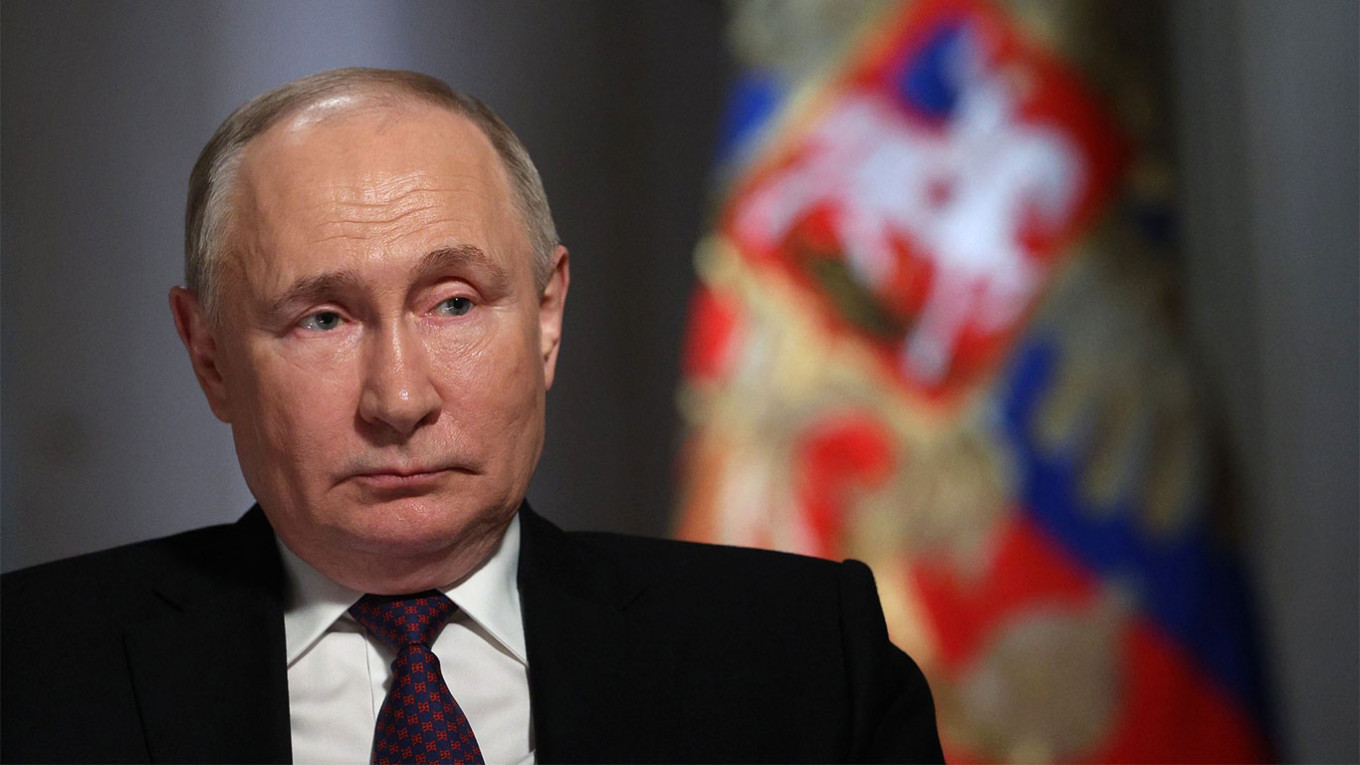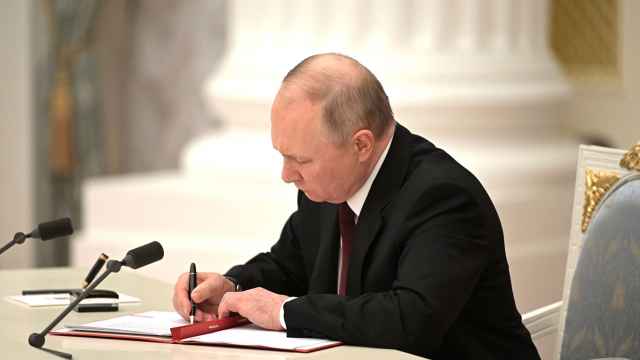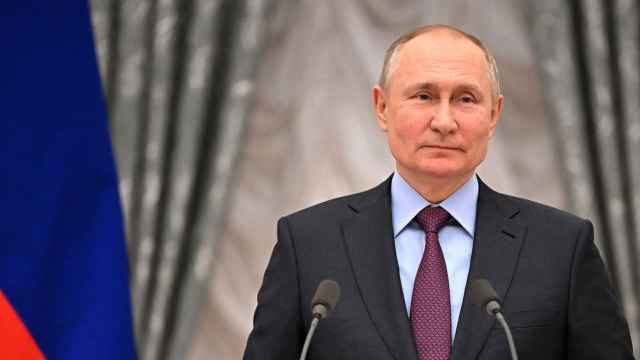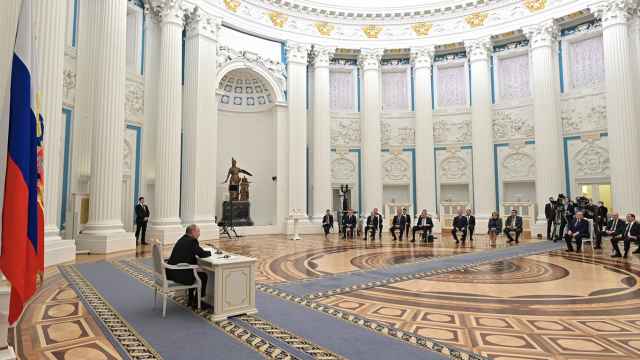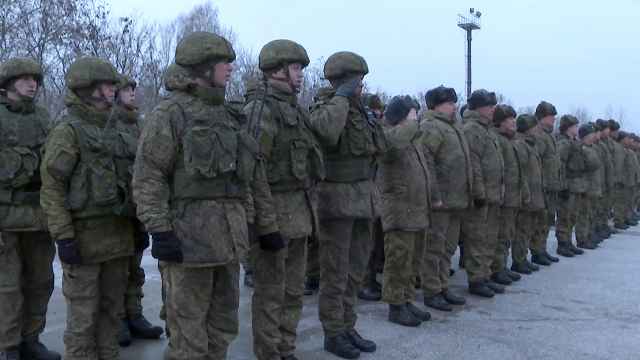Vladimir Putin has just won his fifth term as president of Russia (or his first according to the 2020 referendum). He has been at the helm of the country uninterrupted for 25 years, even while Dmitry Medvedev was nominally head of state, making him one of the longest-serving leaders in Russian history. Like all those leaders, his lengthy tenure includes periods of reform, rapid development, stagnation and war.
What makes Putin's political longevity increasingly puzzling is the absence of any distinguishing characteristics, personal or political, that defeated his challengers for the Russian throne. The answer lies in how although Russia’s leader was determined by chance, the system rebuilt itself around him.
Putin does not possess any qualities that would distinguish him from other Russian politicians, other than the office he holds. He is an uninspiring speaker, his expressions are formulaic, if not outright primitive. He is slow to absorb new information and struggles to remember names and numbers. He struggles to grasp the mood of his audience, and has a mediocre, thuggish sense of humor at best.
Not surprisingly, he never made an impression on anyone until he gained power. Once he did, his apparent charm was the product of the respect commanded by his office, not his personality. By contrast, Alexei Navalny, the Russian opposition leader murdered on Putin’s orders, made an impression wherever he went whether among seasoned diplomats at an embassy reception or inmates in a prison colony. If Putin were to enter a room unannounced, no one would notice him.
Putin is not the only uninspiring person to have led Russia — look at Nicholas II. But while his supreme power was inherited, Putin’s rise was very different. In 1999, the power obtained through appointment as prime minister had to be earned and defended, not merely inherited.
It is clear what made Putin president. In the absence of a political program that was distinct from his predecessor, he was perceived as a man of the people. Because that is what he was, an average man. After 10 crisis-ridden years, when the elite invariably occupied the top positions, someone who resembled the views, approaches, and mannerisms of the majority appeared attractive.
After a quarter of a century in power, Putin no longer resembles the average Russian. In 2024, his views on most issues align with those of a small minority. The combination of his advanced age (in a country with a relatively low life expectancy) and mental inflexibility which prevents him from adapting to a changing world, led to Putin's views becoming distant from those of the majority of Russians.
The sharp increase in censorship and repression of people who stray from the official lines about war and peace, authority, gender relations, etc. is a direct result of this divergence. Putin can no longer pretend to be an average man, because he is no longer average. Russia’s citizens changed, but he did not — because he has not had to.
The snap forensic analysis after the March 2024 elections showed that the government had to add tens of millions of votes to Putin's final tally to make his so-called victory look more decisive. Putin had no chance of winning a competitive election. He had to arrest, force into exile, and — ultimately — kill his political opponents, along with closing newspapers and prohibiting civil organizations, and making sure his only opponents were puppet candidates to make it happen.
As unimpressive as Putin is as a person, he is equally devoid of individuality as a politician. Across his quarter of a century in power, he appointed people to key positions based on personal relationships. Their professional qualities clearly played a secondary role.
Of course, the state is made up of many institutions and many people. A significant share of those in power have made their way through a competitive, albeit undemocratic, selection process. Stalin or Khrushchev appointed the overwhelming majority of their closest associates — quick-minded, resilient, morally flexible people capable of working 20 hours a day — this way. With Putin, for every competent technocrat like Igor Shuvalov or Elvira Nabiullina, there is an Igor Sechin or Vladimir Yakunin, otherwise useless personal friends.
Putin's inability to work with strong and independent-minded individuals was evident from the very beginning of his rule. By 2022, such people were practically nonexistent among Russia’s leaders.
In theory, the inability to select and promote technocrats, even in his own political interests, should have caused Putin to lose power at an early stage. But it did not. The system operated on the premise that the most competent individuals had the opportunity to become incredibly wealthy if their activities also ensured the prosperity of Putin's inner circle. For instance, Igor Shuvalov was a competent hand who guided the government's response to the 2008-2009 financial crisis. He made a staggering billions of dollars in the process.
One can also look at the Russian Railways under Vladimir Yakunin or Rosneft under Igor Sechin. The companies functioned the exact same way as they would have done without them, while their executives raked in incredible salaries without doing anything.
This system, in which the state functions by allowing the most professional individuals to become extraordinarily wealthy compared to others in different countries, may seem like a complex, intricately designed scheme. However, it is not the result of any deliberate plans. Rather, the system gravitated naturally towards that state in the absence of real leadership.
The outcome of Russia sliding into this natural state has been so dismal that it is only natural for commentators to assume it was intentional. It is convenient to believe that the trillions of rubles spent on the military and national security are the result of a cunning, villainous, plan. It is a challenge — and an unpleasant one at that — to understand that military spending is always profitable for the elites, and that theft is easiest to justify under the guise of security concerns.
The militarization and corruption of the Putin-led state not only complemented each other but also depended on each other's existence. They are the default towards which the system gravitates in the absence of conscious, deliberate, costly efforts aimed at preventing them.
The triumph of archaic, statist ideology in the late Putin years is not an extension of his personality. The internal war against modernity, reforms, and contemporary social relations, is not simply the result of Putin's many years in power and his inability to keep pace with a changing world. Following an archaic ideology demands minimal effort and helps justify the repression necessary to maintain power.
The war against the LGBTQ+ community comes, of course, from backwardness and ignorance. But it is also a war against a younger, growing majority in defense of one's own power. Likewise, the war against abortion rights and women's autonomy is classic ideological conservatism. But it is also politically conservative — a pregnant woman is less likely to join a protest, and a man tied to a single job to support his large family is more likely to remain loyal. Though Putinism seems unique, turns out to be just the most primitive ideology that ensures the continuation of his power.
The origin of the "Putin phenomenon" lies in the fact that the Russian state was built and solidified around this average individual. The result could never be effective, and turned out to be tragic.
A decade and a half of stagnation, during which the country fell further behind the world each year, culminated in a war that has already claimed tens of thousands of lives, a wave of repression that led to hundreds of thousands of refugees, the destruction of science and education, and the creation of a new economic model that sets the stage for a crisis after the war ends.
But whether this story will convince the country that it needs a different model to live and thrive is yet unclear.
A Message from The Moscow Times:
Dear readers,
We are facing unprecedented challenges. Russia's Prosecutor General's Office has designated The Moscow Times as an "undesirable" organization, criminalizing our work and putting our staff at risk of prosecution. This follows our earlier unjust labeling as a "foreign agent."
These actions are direct attempts to silence independent journalism in Russia. The authorities claim our work "discredits the decisions of the Russian leadership." We see things differently: we strive to provide accurate, unbiased reporting on Russia.
We, the journalists of The Moscow Times, refuse to be silenced. But to continue our work, we need your help.
Your support, no matter how small, makes a world of difference. If you can, please support us monthly starting from just $2. It's quick to set up, and every contribution makes a significant impact.
By supporting The Moscow Times, you're defending open, independent journalism in the face of repression. Thank you for standing with us.
Remind me later.



